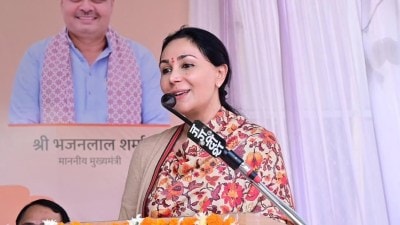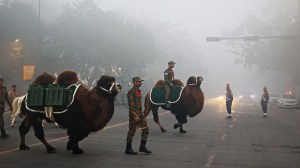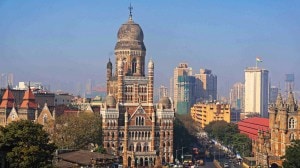Setting water on fire
The dispute over the distribution of the Cauvery water between Karnataka and Tamil Nadu and the order of the Supreme Court has created a ser...

The dispute over the distribution of the Cauvery water between Karnataka and Tamil Nadu and the order of the Supreme Court has created a serious constitutional crisis. The apathetic approach of the central leadership only adds fuel to the fire. The issue of water is related to the genuine need of the farmers and it would never be possible to solve such issues through court orders or on political considerations. Our country has been amply forewarned about the serious consequences of water disputes and of the urgent need, therefore, to evolve a national water policy through consensus.
It is true that an attempt to evolve such a policy was made during the meeting of chief ministers presided over by the prime minister on April 1, 2002. But though a welcome initiative, the effort was inadequate and failed to come up with firm decisions. It is most important to involve major political parties, all the chief ministers, and the Planning Commission in this process.
Such a policy must address several issues. It should be unanimously resolved that water is both a natural and national resource and every citizen in the country is entitled to an equitable right to its use. No person, or even the government, could be deemed to own water. Water belongs to the whole of society and the people.
After investing thousands of crores of rupees, hardly 32 per cent of the land in India is perennially irrigated through various reservoirs. Not even 70 per cent of the land in command areas have so far received irrigation facilities. Besides, over 20 mh of irrigated land has become saline or waterlogged. With additional investment, it may be possible to irrigate nearly 40 per cent of the total area through canal irrigation. Thus 60 per cent of the area will always depend on rains. Scientific micro-watershed development to conserve every drop of water and the prevention of soil erosion is the only solution which could take care of these lands and ensure drinking water for the people. This approach must also be applied in all the catchment areas of big dams to prevent soil erosion and save water reservoirs from siltation.
|
The country has not paid adequate attention to recycling used water. There is no compulsion to treat the water polluted by industries or by municipal bodies |
The government should charge the apex bodies of the beneficiaries for the water provided from any project and beneficiary societies should recover the same from the actual users. Efforts should be made to make such projects bankable and non-users should not be charged for the same. Cooperatives of the beneficiaries of water should be encouraged all over the country.
Water is required by the roots of the trees and crops, not for the whole of the land. The existing system of providing unlimited water to all the land has created problems of salinisation and water logging. Besides, the excessive use of fertilisers and pesticides has affected soil texture. It is, therefore, necessary that those who use surface or underground water for irrigation are put under an obligation to use the sprinkler or drip irrigation system in their fields. Crops or industries consuming proportionally more water should be discouraged. R038;D centres must be established to bring down the use of water in all sectors, in cooperation with the existing national laboratories and agricultural universities.
To pump out water without recharging the aquifers is to set the water itself on fire. After scientifically assessing the underground level of water, the number of borewells or wells in a watershed unit should be prescribed with necessary restrictions. The gram sabha of a village should be authorised to lay such restrictions.
The country has not so far paid adequate attention to recycling used water. Similarly, there is no compulsion to treat the water polluted by industries or by municipal bodies. It should be made obligatory to treat the polluted water and to recycle used water whenever possible. The evaporation of water is another challenge before the country.
Simple and cost-effective methods should be used to conserve water from ridge to valley or from top to bottom along with afforestation and silvipasture. Traditional storage systems and other methods have great relevance. New simple methods like using empty cement bags to erect simple bunds on the nullahs at the end of each rainy season could adequately meet the drinking water needs in a particular area.
In view of the heavy demand on water in the future, an ambitious programme to divert additional water 8212; flowing from the Ganga, Yamuna, Brahmaputra or Mahananda, and also from the rivers flowing from the western parts of the Sahyadris to the Arabian Sea 8212; to the needy areas in the country, should be undertaken without any delay. The garland canal scheme prepared in 1978-79 deserves urgent consideration. Water is a common asset of the people and every citizen from north to south or east to west has an equal right in its equitable use. To preserve the unity and integrity of the country, this approach must be accepted by all.
It has been estimated that the population of India will stabilise by the year 2050, when it will be about 160 crore. It may be impossible to meet even the basic minimum needs like water, food, cloth, and so on, of 160 crore people, if we do not look ahead. It has, therefore, become necessary to launch a peoples8217; movement on the Kerala pattern to effectively control the population of India. Similar action is also necessary to control the number of unproductive cattle.
Instead of costly, indulgent ways, moderate and simple living alone can ensure sustainable development. Growth with social justice and environmental concern has to be our direction for the future. This writer has proposed to the central government a plan to constitute a Loknayak Jayaprakash Narayan National Mission to develop all the wastelands and natural resources in the country. The Cauvery water dispute, or similar disputes in future, may endanger the very unity and integrity of the country. Hence, for conservation and the effective use of all natural resources, a well considered national policy of water and a well-organised peoples8217; movement is the urgent need.
The writer is a former union minister. He heads Vanarai, an NGO working on environmental and social issues
- 01
- 02
- 03
- 04
- 05































